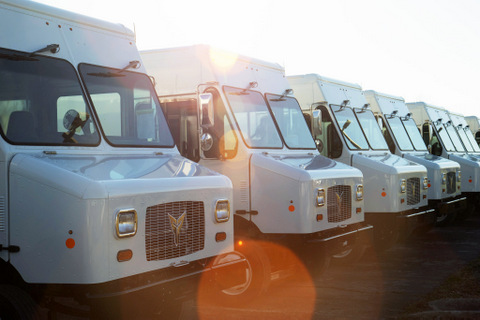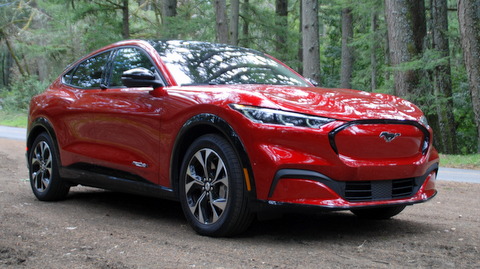Converting Fleets to EVs and Adding Roadside Assistance
The thought of an electric pickup truck, van, box truck or a semi-truck plying the roads seemed far fetched only a few years ago. No more, as the electrification of the trucks that move America’s goods and do its work is here, and growing fast. EVs make a lot of sense for commercial fleets with reduced fuel and maintenance costs and batteries that can be sized to a specific route to eliminate range anxiety.
Companies making near and long-range plans for their fleets are no longer merely thinking gasoline or diesel. They are now considering electric hybrid (HEV), plug-in hybrid (PHEV), battery electric (BEV) and soon hydrogen electric (FCEV) vehicles. Considerations include the distances the fleet vehicles drive, the weights they carry, and the availability of electric and hydrogen fueling stations.
Using a Fleet Management Company
Companies looking to expand their fleets often look to professionals that help research the proper vehicle for their needs, negotiate purchases, maintenance and overall fleet management. An example of such a company is Merchants Fleet that handles all of these. In addition to telematics and GPS tracking, accident and toll management, licensing and title, upfitting and resale, they can also advise if a company is ready to go electric.

So why go through a fleet management company? It all depends on the size of the fleet. If you have only a few cars for sales reps or maybe a van for local deliveries, then going direct to a dealer may work. But for the most efficient use of time and budget, a fleet management company should be a consideration.
More important though is what propulsion type of vehicle is right for a company. Sales reps can easily all be put in hybrids or plug-in hybrids, and in most cases an all-electric car, light truck or SUV. The choices for these vehicles are increasing monthly, proving the value of a fleet management company. Expect to see cities, counties, states and private companies make the switch to some sort of electrified light vehicle, in Classes 1 – 3 (passenger cars up to heavy-duty pickups), by the end of the decade.
The bigger news that will shake-up the trucking industry is that of larger, Class 7 and 8, semi-trucks. Worldwide, Kenworth Battery Electric, Kenworth Hydrogen Electric, Mercedes-Benz, Navistar/International, Tesla, Volkswagen, Volvo, and Volta are just a few of the brands that have announced bringing battery electric or hydrogen electric heavy trucks to market. Class 4 – 6 battery electric medium duty trucks also are being developed by companies like Zeus Electric Chassis and Zevx.
Emergency Roadside Service
Any company running a fleet needs to have the confidence their vehicles are running and operating properly and efficiently. This brings in emergency roadside assistance. Fleet owners know a breakdown at any point on a local, regional or trans-continental trip will doom their schedule and not meet the needs of their customers. Obviously proper maintenance is the first step for no interruptions, but when something does happen, there needs to be a coordinated system for emergency roadside repairs when reaching a dealer is not possible.
One of the leading companies in the United States handling multifaceted roadside services is Cox Automotive Mobility Fleet Services. Cox, through its own service centers and the acquisition of Interstate Truck Center and Dickson Fleet Services, has the ability to reach disabled trucks anywhere in the country with one of its 1,000+ technicians and 750+ mobile service trucks. Cox has an academy to train technicians on everything that will be needed to repair a vehicle, with an increasing emphasis on electric vehicles.
Terry Rivers, vice president at Cox says “we are going through a transition of fleet electrification,” which includes there being “a lot of misinformation out there” about electrified vehicles. Range anxiety is still important, and he said many people think electrification is “a fad and question if it will catch on.” This is something Rivers says they need to overcome with customers and even their internal managers.
Trained and Certified Technicians

Whether it be for a passenger car or a commercial vehicle, emergency service can provide peace of mind for drivers. For the trucks that haul everything we consume it is a lifeline for getting goods and products to their final destination. When a truck breaks down, the service for the tires, wheels, suspension and other common parts is the same for a gasoline or diesel-powered vehicle as it is for a battery electric or hydrogen electric vehicle.
Terry Rivers with Cox tells a story. When electric vehicles were first introduced, technicians wanted nothing to do with them. But now, he says, “when I call a trained technician, telling them an EV is broken down in their area, I hear nothing but excitement on the other end of the phone, which is opposite from a few years ago.” Rivers goes on to say this is encouraging as “people are running towards them (electric vehicles) not away from them.”
The Consumer and Commercial Connection
Drivers think nothing of the trucks they see on the road, unless they are in their way, then it’s all about how to safely get past them. But there is a much stronger connection between the two vehicles. Without those trucks, the shelves in the stores would be empty, which means keeping them on the road is crucial. This is where fleet management and mobile assistance service comes in, as without them it would be chaos out on the roads.
Companies will be looking into the future for what type of propulsion will move their fleets. Then, once they have a fleet up-and-running, the focus shifts to how to keep it that way. With the possibility of over-the-road heavy trucks being driven autonomously, it is conceivable trucks will be in operation with minimal breaks. This means mobile repairs will become even more important to the supply chain and keeping food on the table.
Make sure to opt-in to the Clean Fleet Report newsletter (top right of page) to be notified of all new stories and vehicle reviews.
Story by John Faulkner.
Related Story:
Opinion: Dispelling Some EV Myths About Fleet Electification

1 thought on “Emerging Fleet Trends—Going Electric”